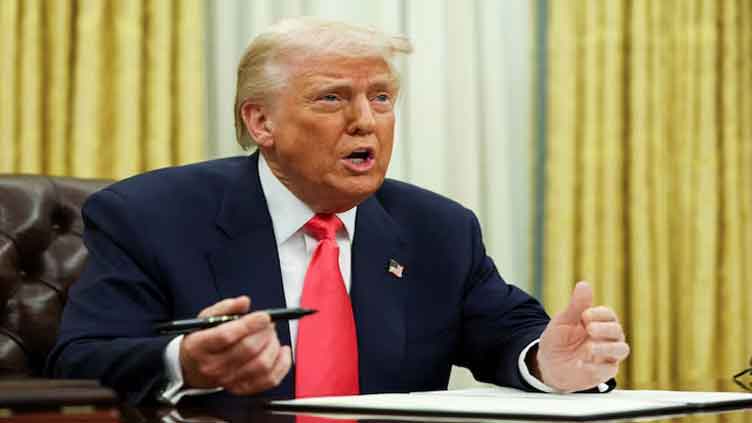Pakistan, India agree to ceasefire after Trump's mediation

Pakistan
Our forces are handling the situation responsibly and with restraint, says ministry
ISLAMABAD (Web Desk) – Nuclear-armed neighbours Pakistan and India agreed to a ceasefire on Saturday following US pressure and four days of intense fighting.
Pakistan’s Foreign Ministry stated that the country remains committed to the ceasefire. "Our forces are handling the situation responsibly and with restraint," the ministry said.
It further urged troops on the ground to exercise restraint and noted that any issues related to the ceasefire implementation should be resolved through communication at appropriate levels.
This recent escalation marked the worst fighting between the long-time South Asian rivals in nearly three decades, raising fears of a full-scale war in one of the world's most volatile and densely populated regions.
Concerns over a potential nuclear confrontation intensified after reports that Pakistan’s top nuclear oversight body would convene. However, Pakistan’s defence minister later clarified that no such meeting was scheduled. This clarification came after a night of heavy cross-border fighting that included attacks on military bases and brought the combined civilian death toll to 66.
"Pakistan and India have agreed to a ceasefire with immediate effect," Foreign Minister Ishaq Dar announced on X.
"Pakistan has always strived for peace and security in the region without compromising its sovereignty and territorial integrity."
US President Donald Trump posted on X: "After a long night of talks mediated by the United States, I am pleased to announce that India and Pakistan have agreed to a FULL AND IMMEDIATE CEASEFIRE. Congratulations to both countries on using common sense and great intelligence."
Hotlines and Diplomacy
Foreign Minister Dar revealed that military hotlines between India and Pakistan had been reactivated, and that over three dozen countries had contributed to brokering the agreement.
The crisis escalated on Wednesday when India launched strikes on Azad Kashmir and parts of Pakistan, two weeks after 26 Hindu tourists were killed in Indian-administered Kashmir. India blamed Pakistan for the attack, a claim Islamabad strongly denied. The days that followed saw intense cross-border shelling, drone strikes, and missile exchanges.
U.S. Secretary of State Marco Rubio said he and Vice President JD Vance engaged extensively with Indian Prime Minister Narendra Modi, Pakistani Prime Minister Shehbaz Sharif, Indian Foreign Minister Subrahmanyam Jaishankar, Pakistan’s Army Chief General Asim Munir, and the national security advisers of both countries over a 48-hour period.
In a post on X, Rubio praised Modi and Sharif for reaching the agreement, which includes not only an immediate ceasefire but also the initiation of talks on "a broad set of issues at a neutral site."
The ceasefire was met with relief across both sides of the border. Pakistan’s Civil Aviation Authority confirmed that national airspace had been fully reopened.


